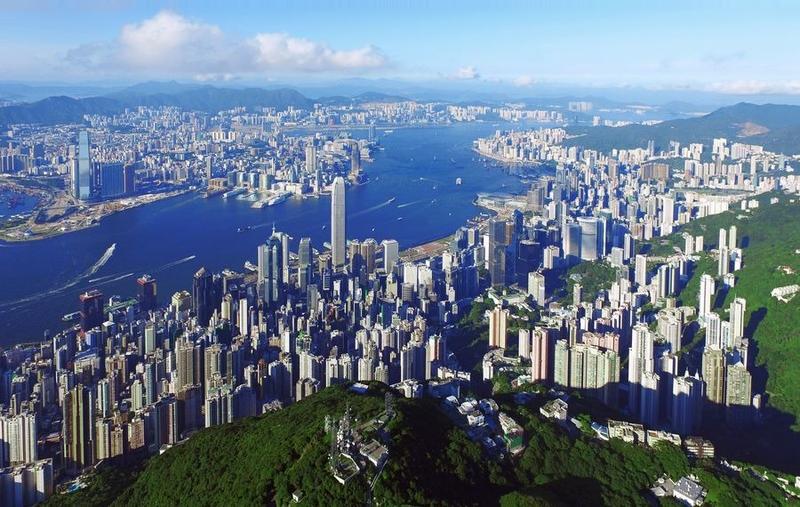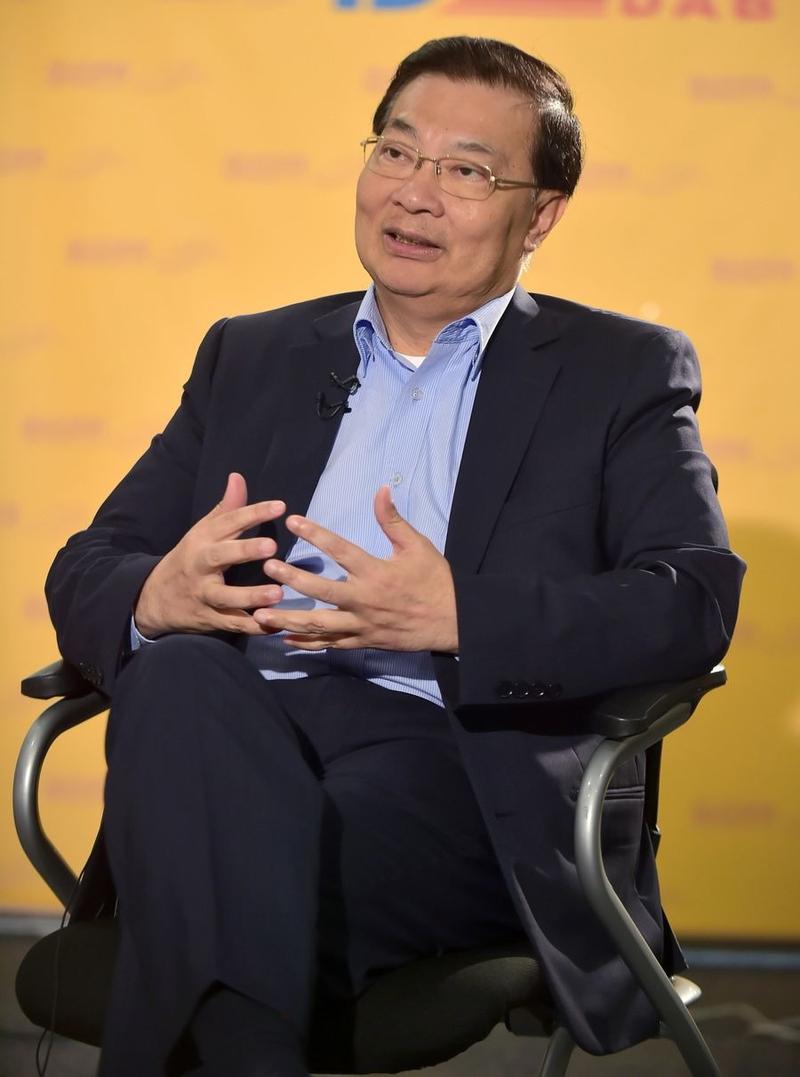 Aerial photo taken on June 27, 2017 shows the scenery on the both sides of the Victoria Harbour in Hong Kong, south China. (LUI SIU WAI/XINHUA)
Aerial photo taken on June 27, 2017 shows the scenery on the both sides of the Victoria Harbour in Hong Kong, south China. (LUI SIU WAI/XINHUA)
HONG KONG - Tam Yiu-chung, a member of the Drafting Committee for the Basic Law of the Hong Kong Special Administrative Region (HKSAR), has stressed Hong Kong residents' responsibilities in implementing the Basic Law, in particular concerning safeguarding national security.
READ MORE: Basic Law hailed as 'cornerstone' of HK's stability and prosperity
"Since Hong Kong's return to the motherland over 20 years ago, the Basic Law has provided a solid legal basis for the practice of 'one country, two systems' in Hong Kong and played a key role in sustaining Hong Kong's social prosperity and stability," Tam told Xinhua ahead of the 30th anniversary of the promulgation of the Basic Law to be marked on Saturday.
Some political figures in Hong Kong deliberately distorted the responsibility as deprivation of individual rights and freedoms, which has hindered Hong Kong's development, said Tam Yiu-chung
Hong Kong residents should further understand the significance of "one country, two systems" and the Basic Law and continue to comprehensively and accurately implement the Basic Law, instead of "only talking about rights and ignoring responsibilities," Tam said.
According to the Basic Law, Hong Kong should enact laws on its own to safeguard national security.
"It's necessary. Every part of China should assume the responsibility of safeguarding national security, sovereignty and core interests, and Hong Kong is no exception," Tam, who is also a member of the Standing Committee of China's National People's Congress, said.
However, some political figures in Hong Kong deliberately distorted the responsibility as deprivation of individual rights and freedoms, which has hindered Hong Kong's development, Tam said.
 File photo of Tam Yiu-chung, a member of the Drafting Committee for the Basic Law of the Hong Kong Special Administrative Region. (XINHUA)
File photo of Tam Yiu-chung, a member of the Drafting Committee for the Basic Law of the Hong Kong Special Administrative Region. (XINHUA)
After the drafting committee of the Basic Law was established on July 1, 1985, Tam, as a representative of the Hong Kong labor sector, together with representatives from Hong Kong's business sector and the universities, as well as 36 members from the mainland, started the drafting of the Basic Law. The Basic Law was finally promulgated on April 4, 1990.
The drafting process was transparent and open, building consensus of the Hong Kong society, Tam said.
"We often briefed reporters about our discussion after group meetings, and we held many large-scale discussions to solicit public opinions to fully understand people's demands," Tam said, adding that the mainland members also met with people from all walks of life and visited ordinary residents to listen to their voices.
ALSO READ: The Basic Law — best safeguard for HK's prosperity and stability
During the past over 20 years, the Basic Law has been smoothly implemented in Hong Kong as the central authorities have remain committed to the principles of "one country, two systems," "Hong Kong people administering Hong Kong" and a high degree of autonomy in the HKSAR in strict accordance with the constitution and the Basic Law and have ensured that the principles are fully applied in Hong Kong without being bent or distorted, Tam said.
Many Hong Kong residents support "one country, two systems" and the Basic Law and consciously safeguard and implement the Basic Law, Tam said.
 Photo taken on Aug 5, 2019 shows China's national flag and the flag of the Hong Kong Special Administrative Region at the Golden Bauhinia Square in Hong Kong. (WU XIAOCHU/XINHUA)
Photo taken on Aug 5, 2019 shows China's national flag and the flag of the Hong Kong Special Administrative Region at the Golden Bauhinia Square in Hong Kong. (WU XIAOCHU/XINHUA)
Tam admitted that there have been disputes around the Basic Law as some political groups in Hong Kong intentionally distorted and resisted the Basic Law.
According to the Basic Law, the ultimate aim of selecting the HKSAR Chief Executive is the selection by universal suffrage upon nomination by a broadly representative nominating committee in accordance with democratic procedures, which, Tam believes, shows the central authorities' sincerity towards Hong Kong.
Meanwhile, Tam said the central authorities must ensure Chief Executive candidates' loyalty to Hong Kong and support for the Basic Law. "Otherwise, the well-being of Hong Kong residents will be damaged and Hong Kong's prosperity and stability will be threatened."
Despite social unrest due to violent protests in the second half of 2019, Tam remains confident about Hong Kong's future.
As long as Hong Kong residents can realize that "one country, two systems" is the best institutional arrangement for Hong Kong and the country, support "one country, two systems" and the Basic Law, and fully and accurately implement the Basic Law, Hong Kong will definitely have a brighter future, Tam said.


